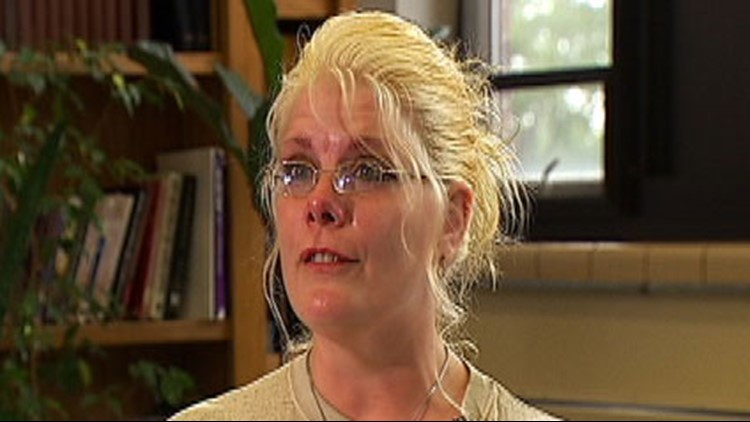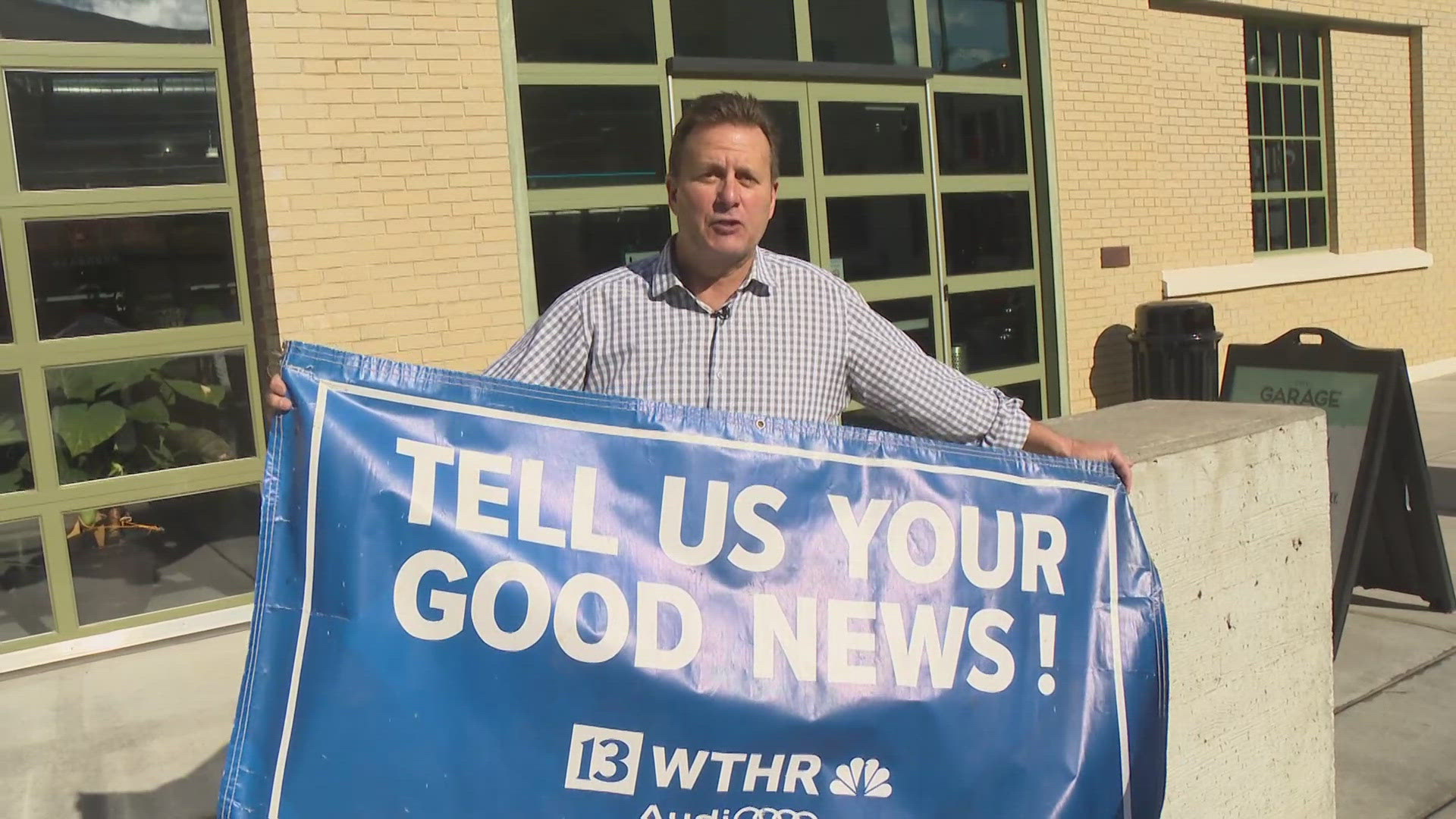Behind bars for 16 years, an Indiana mother found guilty of setting the fire that killed her three-year-old son says she was wrongfully convicted.
Now as she awaits a decision on a new trial by the Indiana Court of Appeals, Kristine Bunch sits down exclusively with 13 Investigates with claims of burning injustice. At issue is Indiana's method of fire investigation.
Kristine Bunch has had 16 years to think about it, and to dream about the early morning fire that swept through her Greensburg mobile home in June, 1995.
"A lot of it is like a fog. You kind of remember, kind of don't, are confused," she told 13 Investigates. "I had some burns on my face. My hair was singed off. So were my eyebrows and eyelashes. I had cuts on the bottom of my feet from running out."
Her three-year-old son Tony was carried out in the arms of a Greensburg firefighter. He was found between his bed and a wall.
In her first local television interview, the she sat down with 13 Investigates behind prison walls to talk about the arson case that she and a team of attorneys say led to her wrongful conviction.
"It's still a lot to wrap your mind around, to try to remember, to try to talk about," the 37-year-old said, shaking her head still in disbelief.
Bunch's attorneys won't allow her to talk about the inconsistent details of her actions that morning. In court papers Kristine says she awoke to the fire, tried to put it out and rescue Tony, but was pushed back by flames. She fled to get help.
Tears come easy as she recalls asking about her trapped son and unknowingly becoming a suspect.
"I just kept asking, 'Did you find him?'" she said with tears rolling down her cheeks.
"What did they say it meant?" 13 Investigates asked.
"That I had hidden him or tried to keep him from being found," she said referring to the allegations she faced.
Investigators had no clear motive, but convinced a jury that Kristine Bunch, a single, unemployed mother on food stamps with no life insurance policy, deliberately set the fire.
Their evidence: the presence of an accelerant and a gasoline can found three feet from the front door, burn patterns, hydrocarbon readings, or the analysis of unburned fuel, and a chair blocking the door preventing three-year-old Tony's escape.
13 Investigates asked her what she remembered about the day she was convicted of two felony crimes.
She sighed deeply. "I remember thinking, I'm six months pregnant and they just sentenced me to 110 years. And I just kept on saying that 'I didn't,'" she recalled.
Bunch received 60 years for murder and 50 years for arson, sentences she was ordered to serve at the same time. She calls the outcome crushing.
"How many times did you have someone say, 'Kristine, did you do this? Did you set the fire?'" 13 Investigates asked.
"Hundreds," she responded. Her answer to the question?
"No, I would never," she told 13 Investigates.
Inside prison walls, she gave birth to another son months later. It was then she found the will to fight.
In 2003, while working in the prison law library she discovered a Texas arson case getting nationwide attention based on what experts called "junk science."
She was alarmed that prosecutors in her case used some of the same questionable arson indicators under review in the Texas case. 13 Investigates first spoke with national experts who uncovered the flaws and wrote new investigative standards for arson in a series entitled "Burning Injustice" in 2008.
"I started raising hell about it," scientist Gerald Hurst told 13 Investigates. He was referring to the arson conviction and execution of Cameron Todd Willingham. Willingham's case prompted a series of fire tests that discovered prosecutors were wrong in their fire theory and analysis.
"We started looking at our own guidelines. We started realizing they're not only woefully inadequate, they were woefully wrong," added Dan Churchward, who was on the committee to write new arson standards now known as NFPA 921.
Kristine Bunch and attorneys from the Center for Wrongful Convictions at Northwestern University recently made similar arguments about outdated fire investigation techniques and theories before the Indiana Court of Appeals.
Armed with testimony from a world renowned ATF investigator, and scientists they say Bunch should get a new trial.
"There was zero evidence, zero that this was intentionally set" said Attorney Ron Safer, who presented arguments to the Court of Appeals. "No one would get up on the stand today and say burn patterns means arson. And that's exactly what they said when Kristine was on trial. We know it's wrong," he added.
Specifically, Safer says there is no evidence of an accelerant or a burn pattern in Tony's room. Toxicology reports show Tony died from high levels of carbon monoxide poisoning, suggesting the fire didn't start in the open air, but in the ceiling.
As for that chair blocking Tony's door, attorneys say it was actually a charred wall.
State prosecutors refused to speak about the case. But told the Court of Appeals, even if all of the fire evidence were taken away, they could still convict Kristine Bunch based on her inconsistent statements and behavior.
In court papers investigators say she gave three different accounts of what happened.
They say during a polygraph test, when asked why she started the fire she said she "didn't know."
Bunch denies making that statement, and says her words were misconstrued.
"You've never told anyone "I did it or I don't know why I did it?" asked 13 Investigates.
"No," said Bunch shaking her head.
Polygraph tests are not admissable in court unless the person taking the test signs a waiver saying they understand the results could be used against them, and they have had a chance to consult with an attorney. At trial, both the defense and prosecution must agree to allow the polygraph testimony into the record. Testimony about the polygraph was only used during Kristine Bunch's sentencing.
Now after 15 years, locked up for the deadly fire that killed her son, Bunch says it's time a jury hears everything.
"Just fighting to get the truth out. I am not an arsonist, I'm not a murderer," she said. "To get a new trial, that would mean that my truth will be heard."
The Indiana Court of Appeals decision could come any day, and could impact other Indiana arson cases based on outdated investigative techniques.
Kristine Bunch has gotten a college degree in prison and is one of the few inmates to take the pre-test for law school. She says she won't stop fighting to overturn her conviction.
Pictures included in the video courtesy Greensburg Daily News.



